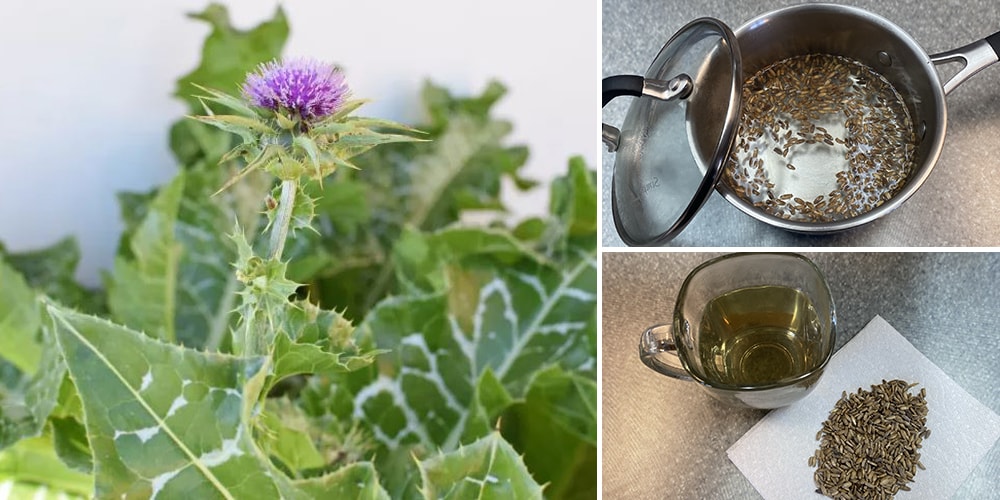
The Plant that Doesn’t Get the Respect it Deserves
In the realm of herbal medicine, certain plants stand out for their exceptional healing properties. This plant is one such herb that has been treasured for centuries for its medicinal benefits, but many people today regard it as a weed. Let’s explore its medicinal properties, historical uses, and modern applications for maintaining and enhancing our health.
The Medicinal Properties of Milk Thistle
Milk thistle has a rich history dating back thousands of years. It was traditionally used by ancient civilizations, including the Greeks and Romans, who regarded it as a valuable medicinal herb. The plant gets its name from the milky white sap that oozes from its leaves when crushed. Milk thistle was especially revered for its ability to support liver health and was used to address liver ailments and promote detoxification.
The key active component of milk thistle is a flavonoid complex known as silymarin. Silymarin is a powerful antioxidant that exerts protective effects on the liver, shielding it from damage caused by toxins, pollutants, and oxidative stress. It also stimulates the regeneration of liver cells, helping to restore liver function. Additionally, milk thistle has anti-inflammatory and immune-boosting properties, making it a valuable herb for overall health and wellness.
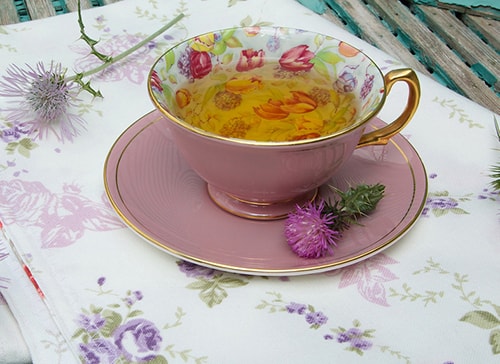
Promoting Liver Health
The liver plays a crucial role in detoxification, metabolism, and overall health. Milk thistle has been extensively studied for its hepatoprotective properties. It supports liver health by:
Detoxification Support: Milk thistle aids in the elimination of toxins and harmful substances from the liver, thereby supporting the body’s natural detoxification processes.
Liver Cell Regeneration: Silymarin promotes the regeneration of damaged liver cells, helping to restore liver function and prevent further liver damage.
Antioxidant Effects: Silymarin acts as a potent antioxidant, neutralizing free radicals and reducing oxidative stress in the liver.
Anti-inflammatory Action: Milk thistle exhibits anti-inflammatory properties, which can help reduce liver inflammation and support liver health.
⇒ Herbs That Aren’t Friendly to Your Kidneys & Liver (Video)
Beyond Liver Health: Other Health Benefits
While milk thistle’s reputation primarily revolves around liver health, its benefits extend beyond that. Here are some additional health benefits associated with milk thistle:
Antioxidant Protection: Silymarin’s antioxidant properties make it beneficial for protecting cells throughout the body from oxidative damage, which is associated with aging and various chronic diseases.
Digestive Health: Milk thistle can aid digestion by promoting the production of bile, which aids in the breakdown and absorption of fats. It may also help alleviate symptoms of indigestion and support a healthy gastrointestinal system.
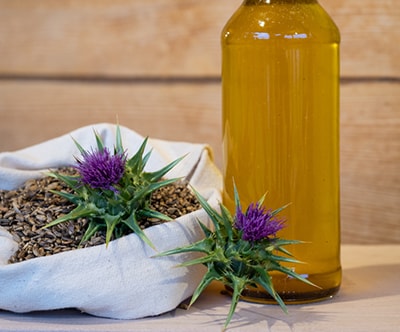 Skin Health: The antioxidant and anti-inflammatory properties of milk thistle can contribute to healthier skin by reducing inflammation, supporting collagen production, and protecting against free radicals that contribute to skin aging.
Skin Health: The antioxidant and anti-inflammatory properties of milk thistle can contribute to healthier skin by reducing inflammation, supporting collagen production, and protecting against free radicals that contribute to skin aging.
Blood Sugar Balance: Some studies suggest that milk thistle may help regulate blood sugar levels by improving insulin resistance and reducing inflammation in people with diabetes. However, further research is needed in this area.
Incorporating Milk Thistle into Your Routine
Milk thistle is available in various forms, including capsules, extracts, and tinctures. When choosing a milk thistle supplement, ensure that it contains a standardized amount of silymarin for optimal potency and effectiveness. It’s important to follow the recommended dosage instructions provided by the manufacturer or consult with a healthcare professional or herbalist for guidance.
It’s worth noting that milk thistle may interact with certain medications, so it’s important to consult with a healthcare professional before adding it to your regimen, especially if you have an underlying medical condition or are taking prescribed medications.
Refreshing Milk Thistle Tea
To make a potent tea to boost your liver health you will need the following:
Ingredients:
- 1 tbsp. dried milk thistle seeds
- 1 cup boiling water
- Honey or lemon (optional, for flavor)
Instructions:
- Start by gathering high-quality milk thistle seeds. Ensure that they are organic and free from contaminants.

- Bring 1 cup of water to a boil in a small saucepan. Remove from heat once it has reached a boil.
- Steep the milk thistle seeds for 5 to 10 minutes.

- To eliminate any solid particles, filter the tea using a strainer.
- After steeping, remove the tea infuser or strain out the seeds or leaves using a fine mesh strainer.
- If desired, add honey and plant-based milk to create a creamier texture.

How to Use
Drink milk thistle tea in moderation, no more than 5 cups each day. Nausea, headache, diarrhea, gas, and bloating are some of the negative effects you may experience after drinking the tea. Milk thistle tea should not be consumed by people who are allergic to thistle, ragweed, artichokes, or any other plant in the aster family.
The Bottom Line
With its powerful antioxidant and anti-inflammatory properties, milk thistle offers numerous health benefits beyond liver health. Whether you’re looking to support your liver, improve digestion, enhance skin health, or balance blood sugar levels, milk thistle can be a valuable addition to your herbal medicine cabinet

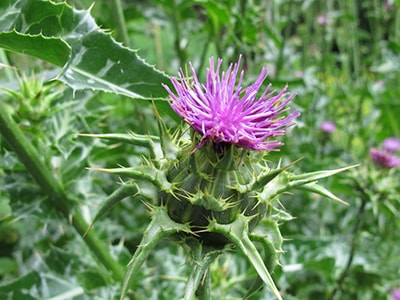
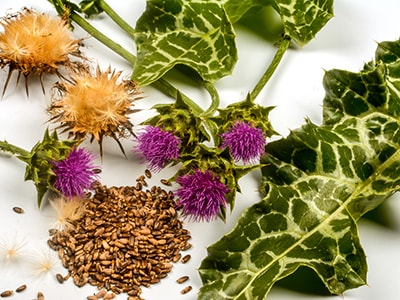
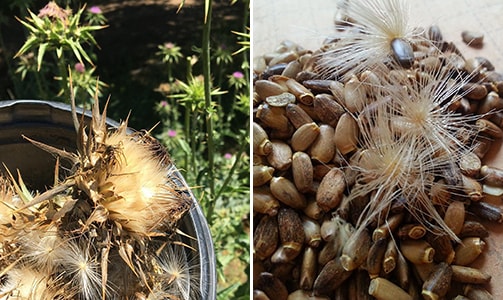
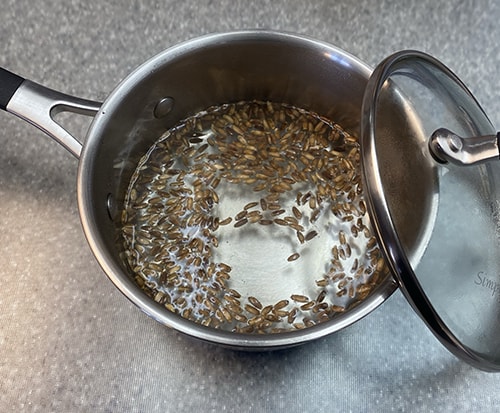
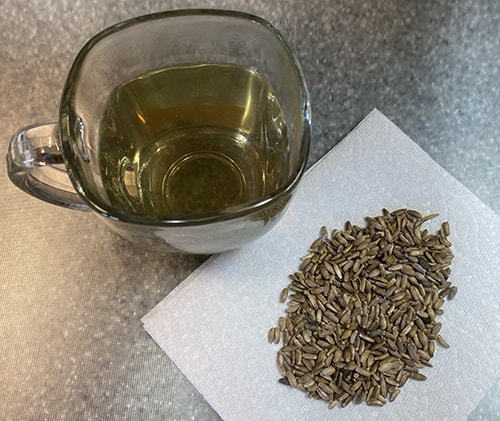
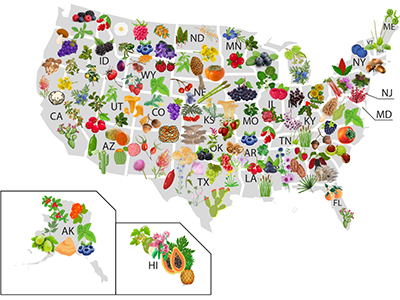
Is that the same plant we call scotch thistle in Australia ?
Hi Sean, I live in Oz. No, the scotch thistle is different. The flowers look the same and the prickles on both plants are pretty similar but the milk thistle has wider red/green stems and when you break them open the white milk oozes out.
Stick LOVE to eat milk thistle whilst not so keen on scotch thistle.
I’m in rural Oz so does the scotch thistle have the same benefits as milk thistle.. is it safe to use ?
What is the “standardized amount of silymarin for optimal potency and effectiveness”?
I use Spring Valley Milk Thistle 175mg capsules, with 80%Silymarin. Is this (in your opinion) a proper dose or brand?
Thank You.
L.W.McQueary aka. oldtroll57@gmail.com
Milk thistle. Thanks I knew that it is good news for the liver. But it was great to read that it’s not the only benefit.
Sadly I purchased a hard back of your home remedies.
What I received was a soft paper copy of a book who’s illustrations are in black and white.
Not overly helpful when foraging.
I will no longer purchase or promote a book that does not deliver what it claims.
Hi Daniele,
Thank you so much for your comment.
We sent you a private message (an e-mail) so we can sort it out.
We wish you the best of health!